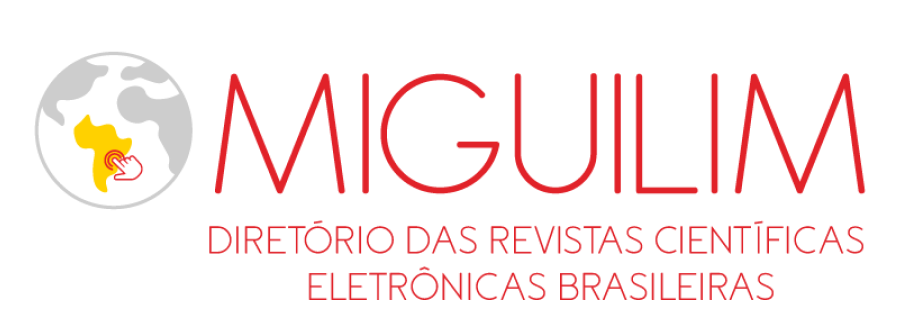Estudo de diferentes meios de cultivo celular para expressão de glicoproteína recombinante humana, em células de ovário de hamster chinês (cho)
DOI:
https://doi.org/10.5281/zenodo.15566565Keywords:
Cultivo celular, CHO, Meio de cultivo, TSH, GlicoproteínasAbstract
Um cultivo de células eucariota refere-se à manutenção de células removidas a partir de tecido animal ou órgãos, as quais continuam a crescer com adição de fatores de crescimento e nutrientes. As células CHO (Células de Ovário de Hamster Chinês) são muito populares quanto à expressão de glicoproteína recombinante humana. Estas células possuem enzimas de glicosilação que se assemelham àquelas encontradas em linhagens de células humanas. A CHO é uma linhagem aderente passível de adaptação ao crescimento em suspensão e requer meio de cultivo líquido quimicamente complexo e adequado para o seu crescimento. No presente estudo, foi realizado um comparativo de quatro meios de cultivo para células CHO e a expressão da glicoproteína recombinante TSH (Hormônio Estimulante da Tireóide) em dois processos de cultivo, foi analisada.
Downloads
References
BUTLER, M. 2004. Animal cell culture and technology. 2nd ed. London and New York:Garland Science/BIOS Scientific Publishers, p.5.
COLE, E.S.; LEE, K.; LAUZIERE, K.; KELTON, C.; CHAPPEL, S.; WEINTRAUB, B.; FERRARA, D.; PETERSON, P.; BERNASCONI, R.; EDMUNDS, T.; RICHARDS, S.; DICKRELL, L.; KLEEMAN, J.M.; MC PHERSON, J.M., PRATT, B. Recombinant human thyroid stimulating hormone: development of a biotechnology product for detection of metastatic lesions of thyroid carcinoma. Bio-Technol., v. 11, p. 1014-1023, 1993.
DALMORA, S.; De OLIVEIRA, J.E.; AFFONSO, R.; GIMBO, E.; RIBELA, M.T.C.P.; BARTOLINI, P. Analysis of recombinant human growth hormone directly in osmotic shock fluids. J. Chromatogr. A, v. 782 (2), p. 199-210, 1997.
HAYFLICK, L., MOORHEAD, PS, (1961) The serial cultivation of human diploid cell strains. Exp Cell Res 25:585-621.
HUSSAIN, A.; ZIMMERMAN, C.A.; BOOSE, J.A.; FROEHLICH, J.; RICHARDSON, A.; HOROWITZ, R.S.; COLLINS, M.T.; LASH, R.W. Large scale synthesis of recombinant human thyrotropin using methotrexate amplification: chromatographic, immunological, and biological characterization. J. Clin. Endocrinol. Metab, v. 81, p. 1184-1188, 1996.
KASHWAI, T.; ICHIHARA, K.; ENDO, Y.; TAMAKI, H.; AMINO, N.; MIYAI, K. Immunological and biological characteristics of recombinant human thyrotropin. J. Immunol. Methods, v. 143, p. 25-30, 1991.
MONACO, L.; MARC, A.; EONDUVAL, A.; ARCERBIS, G.; DISTEFANO, G.; LAMOTTE, D.; ENGASSER, J.M.; SORIA, M.; JENKINS, N. Genetic engineering of alpha 2,6-sialyltransferase in recombinant CHO cells and its effects on the sialylation of recombinant interferon-gamma. Cytotechnology, v. 22, p. 197-203, 1996.
OLIVEIRA JE, MENDONÇA F, PERONI CN, BARTOLINI P, RIBELA MTCP. Determination of chinese hamster ovary cell-derived recombinant thyrotropin by reversed-phase liquid chromatography. J Chromatogr. B., v. 787, p. 345-355, 2003.
PERONI CN, SOARES CRJ, GIMBO E, MORGANTI L, RIBELA MTCP, BARTOLINI P. High-level expression of human thyroid-stimulating hormone in chinese hamster ovary cells by co-transfection of dicistronic expression vectors followed by a dual-marker amplification strategy. Biotechnol. Appl. Biochem., v. 35, p. 19-26, 2002.
PERSANI, L.; BORGAT, S.; ROMOLI, R.; ASTENA, C.; PIZZOCARO, A.; BECK-PECCOZ, P. Changes in the degree of sialylation of carbohydrate chains modify the biological properties of circulating thyrotropin isoforms in various physiological and patological states. J. Clin. Endocrinol. Metab, v. 83, p. 2486-2492, 1998.
RIGGIN, R.M.; SHAAR, C.J.; DORULLA, G.K.; LEFEBER, D.S.; MINER, D.J. High performance size exclusion chromatographic determination of the potency of biosyntetic human growth hormone product. J. Chromatogr., v.435, p. 307-318, 1988.
SHAAF, L.; LEIPRECHT, A.; SAJI, M.; HUBNER, V.; USADEL, K.H.; KOHN, L.D. Glycosylation variants of human TSH selectively activate signal transduction pathways. Mol. Cell Endocrinol., v. 132, p. 185-194, 1997.
SZKUDLINSKI, M.W.; GROSSMANN, M.; LEITOLF, H.; WEINTRAUB, B.D. Human thyroid-stimulating hormone: structure-function analysis. Methods, v. 21, p. 67-81, 2000.
SZKUDLINSKI, M.W.; THOTAKURA, N.R.; BUCCI, I.; JOSHI, L.R.; TSAI, A.; EAST-PALMER, J.; SHILOACH, J.; WEINTRAUB, B. Purification and characterization of recombinant human thyrotropin (TSH) isoforms produced by chinese hamster ovary cells: the role of sialylation and sulfatation in TSH bioactivity. Endocrinology, v. 133, p. 1490-1503, 1993.
TAKATA, K; WATANABE, S.; HIRONO, M.; TANAKO, M.; TERAOKA, H.; HAYASHIZAKI, Y. The role of the carboxyl-terminal aminoacid extension of human TSH b subunit. Biochem. Biophys. Res. Commun., v. 165, p.1035-1042, 1989.
THOTAKURA, N.R.; DESAI, R.K.; BATES, L.G., COLE, E.S.; PRATT, B.M.; WEINTRAUB, B.D. Biological-activity and metabolic-clearance of a recombinant human thyrotropin produced in chinese hamster ovary cells. Endocrinology, v. 128, p. 341-348, 1991.
THOTAKURA, N.R.; SZKUDLINSKI, M.W.; WEINTRAUB, B.D. Structure-function studies of oligosaccharides of recombinant human thyrotropin by sequential deglycosylation. Glycobiology, v. 4(4), p. 525-533, 1994.
WATANABE, S.; HAYASHIZAKI, Y.; ENDO, Y.; HIRONO, M.; TAKIMOTO, N.; TAMAKI, M.; TERAOKA, H.; MIYAI, K.; MATSUBARA, K. Production of human thyroid-stimulating hormone in chinese hamster ovary cells. Biochem. Bioph. Res. Co., v. 149, p. 1149-1155, 1987.
WEINTRAUB, B.D.; SKUDLINSKI, M.W. Development and in vitro characterization of human recombinant thyrotropin. Thyroid, 9 (1999) 447-450.
WONDISFORD, F.E.; USALA, S.J.; DE CHERNEY, G.S.; CASTREN, M.; RADOVICK, S.; GYVES, P.W.; TREMPE, J.P.; KERFOOT, B.P.; NIKODEM, V.M.; CARTER, B.J.; WEINTRAUB, B.D. Cloning of the thyrotropin beta-subunit gene and transient expression of biologically-active human thyrotropin after gene transfection. Mol. Endocrinol, v. 2, p. 32-39, 1988.
ZEFAOUNI, M.; RONIN, C. Glycosylation is the structural basis for changes in polymorphism and immunoreactivity of pituitary glycoprotein hormones. Eur. J. Clin. Chem.Clin. Biochem. v. 34, p. 749-753, 1996.
Published
How to Cite
Issue
Section
Copyright (c) 2012 Revista Processando o Saber

This work is licensed under a Creative Commons Attribution 4.0 International License.
Os direitos autorais dos artigos publicados pertencem à Revista Processando o Saber e seguem o padrão Creative Commons (CC BY), que permite o remixe, adaptação e criação de obras derivadas do original, mesmo para fins comerciais. As novas obras devem conter menção ao(s) autor(es) nos créditos.























